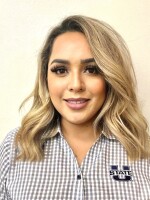Create Better Health is a Utah State University program that provides information about healthy eating and cooking classes for people of all ages. Paola Johnson coordinates the Create Better Health Latino program and UPR’s Jasmine Meza sat down with her to learn more.
Jasmine Meza: Hello Paola, thank you for accepting this invitation to speak about the Create Better Health program, which is available at no-cost to participants. Could you tell us about the objective of the program and what is it about?
Paola Johnson: The program is called Create Better Health. It's the SnapEd program from the state of here in Utah. What SnapEd is is the education component of the supplemental nutrition assistance program. That used to be called food stamps or food vouchers. Basically our program is offered through the extension offices here at Utah State University. One of the main objectives of the program is for the people who offer our classes to learn to eat healthy, to be active, and to do all of this within a budget. We have tips for going to the supermarket, questions about how to improve your health, and the benefits of doing physical activity. I would like people to be super safe. Everything we teach is with scientific knowledge, and it is based on the recommendations of the United States Department of Agriculture.
JM: Paola, explain to us how the classes are given. With the pandemic are they still in person?
PJ: Currently, obviously with the pandemic, they had to go virtual. And currently, we are already beginning to open the classes and the program again, to be able to do live classes.
JM: You said that they were sessions of eight classes, how can they take those classes? Are there any applications or requirements to enter?
PJ: It is a good question and note that precisely our classes, we offer them according to the demand of the population. We absolutely do not ask that you provide us with any proof that they received SNAP or anything like that. More than anything, it is the institutions or programs that invite us, and we are delighted.
JM: You said that they also teach children in schools, for example, what do they teach them?
PJ: We teach them about fruits, vegetables, protein, grains, and cereals. We teach them the importance of exercising. Obviously we do this in a fun way and at the end of classes, we always give or prepare a recipe.
JM: I know you started the program teaching, as an instructor, but tell us what you do now that the program has expanded.
PJ: Above all right now with all this pandemic, now I am in charge of everything that is related to social media for the program in Spanish. And apart from that, what I also do is train all the instructors at the state level that belong to the Spanish program.
JM: I know that this program is not only local, it is something statewide. Do you have something else that you would like to share with us?
PJ: More than anything for all your listeners Jasmine, this program is statewide, several people working in some other counties, working for example, in Duchesne, Utah county, Box Elder, Cache County, Salt Lake County, Iron County. We are several and the most important thing is that these programs are for the people, that the moment we stop receiving or being able to serve, those programs are removed.


